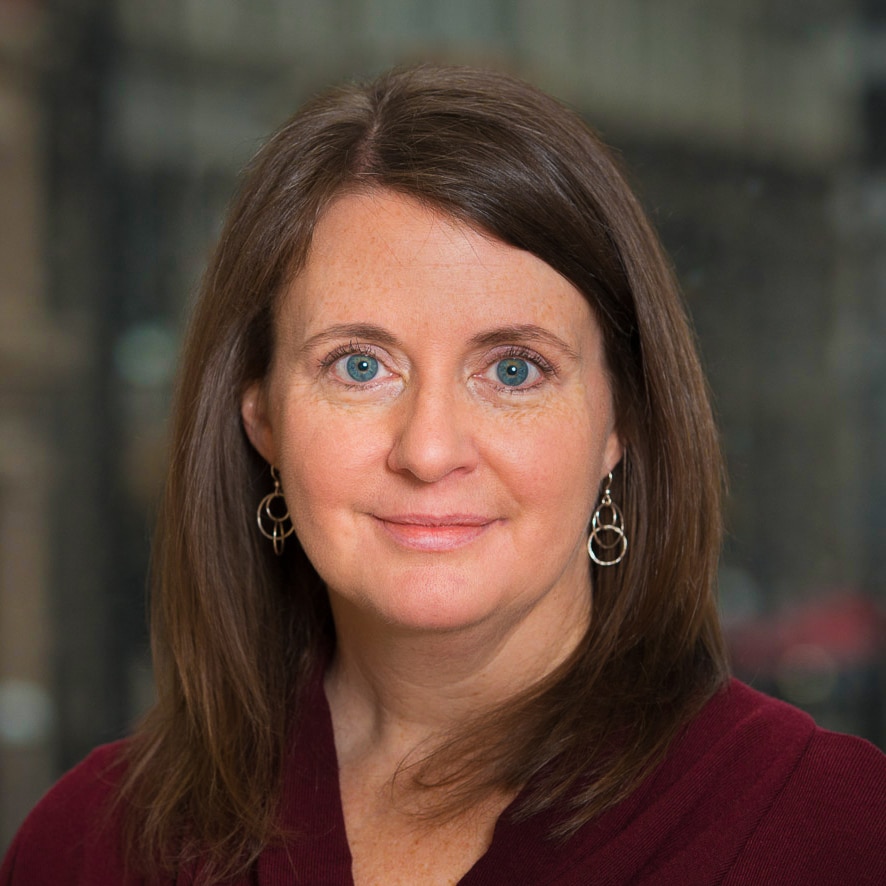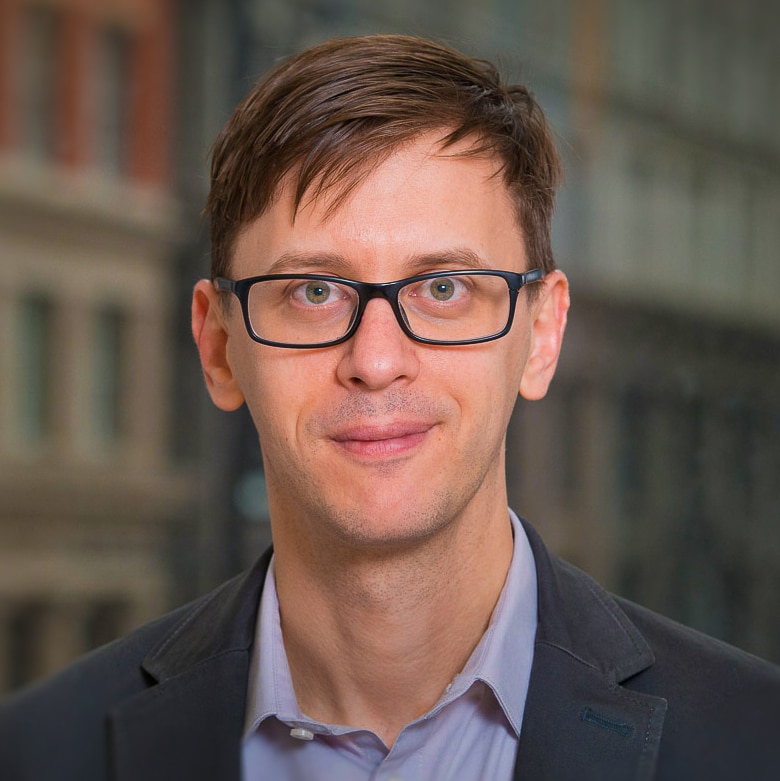Our recent forecast, Imagining Liberatory Education Futures, explores how liberatory education could help people develop to their fullest and determine the course of their lives – and how education systems might support them in the year 2040. To put more shape to the possibilities, Jason Swanson and Katherine Prince sat down to share perspectives on liberatory education futures.
Pushing back on scarcity
Swanson: We tell young people that they can be anything if they put their minds to it, but as I reflect on how we framed liberatory education, I wonder what it would mean to fulfill that promise through K-12 education.
Although we don’t often admit it, our public education systems and structures are founded on a core belief about scarcity and competition. You must lose for me to be number one. For there to be a top 10, there must be a bottom 90. In contrast, liberatory education systems would prioritize all forms of knowledge. They would widen governance and decision-making beyond people with privilege, money and time. Students and community members would have a say in how a school and the education system operated.
Our public education systems and structures are founded on a core belief about scarcity and competition. You must lose for me to be number one. For there to be a top 10, there must be a bottom 90. In contrast, liberatory education systems would prioritize all forms of knowledge.
Also, liberatory education recognizes that we live in a causal world. Education systems need to be nimble to truly serve each learner. They need to broaden current ideas around who is smart and what it means to succeed. They need to develop healthy, well-adapted people who know how to learn, who want to learn and who can navigate a complex future.
Prince: Liberatory education systems would expand our definitions of success to reflect a wider range of knowledge along with people’s own aspirations.
When the US public education system was founded, there was greater gatekeeping of the kinds of things that are taught in school. Does it seem as if liberatory education depends on the current ease of access to knowledge via the Internet and other channels?
Swanson: It doesn’t depend on it, but it’s a happy confluence. The news shows how that gatekeeping aspect is back. It’s dangerous, but it’s also laughable, because you can shut down information within a public education system, but how many of those kids have smartphones? Ubiquity of information is an accelerator for liberatory education.
Prince: The current abundance of information could help people find paths toward liberatory education, across different scenarios.
Before you explore the scenarios in our forecast, learn how futurist Dr. Cheryl Doig reads them and sees their potential for application.
Read now >>
Exploring who and how we want to be
Prince: A key part of our definition of liberatory education, which we drew from Rapheal Randall’s work, is that it is rooted in self-determination and the right to participate in shaping the world. We can’t just go through an education system that doesn’t promote agency or give space for some degree of self-direction and then enter the broader world ready to steer our lives. We have to begin learning that in school, where we spend so much time.
Swanson: I love that aspect of liberatory education. When we think about the current narrative in school, kids are asked, “What do you want to be when you grow up? What are you going to do when you graduate?” Liberatory education allows those questions to be answered in a very real way. It takes an asset-based view of people’s innate intelligence. The idea that students can be shaped by and, in turn, shape the system means that we have to support learning journeys that are based on each student’s needs, interests and goals and start asking kids at a very young age what they want to do and who they want to be now and in the future.
When we think about the current narrative in school, kids are asked, “What do you want to be when you grow up? What are you going to do when you graduate?” Liberatory education allows those questions to be answered in a very real way.
Playing with possibilities
Prince: Encouraging children to explore their aspirations at school could connect with what we know about the importance of play in the learning and lives of young children. Play remains important for all of us, that sense of experimentation and improvisation. Whatever a child explores in first grade works those muscles of exploration; then they discover something else.
Swanson: One of the coolest things about play is that we enter into a shared agreement around fictitious rules that exist nowhere else. We agree to live in that space together for however long it takes to play the game. I think of the future as being a shared space where we lay out some norms we agree to abide by and then explore without consequence. We need more spaces where we can agree to be with one another and see where things go.
Prince: Even with solo play, we get to change the rules as we go along. When my daughter was building a LEGO house recently, I’d come along to see the next version, and she’d tell me that its features were different because she had changed the story. When we explore the future, we can do that, too. We can imagine different realities, change the stories. Then we return from that imaginative space and change the stories in our lives.
Swanson: We need education systems that can spark wonder, that instill a love of learning that set each person on a trajectory where they can ask and seek deep questions. Where they can scrutinize and interpret what’s happening in the civic sphere.
Looking under the hood
Prince: The forecast argues that we need to shift focus from equity to liberation, that if we stay focused on equity within the confines of the current system, we’ll be placing too much burden on individuals to navigate a system that’s structurally oppressive. Let’s unpack that shift.
If we stay focused on equity within the confines of the current system, we’ll be placing too much burden on individuals to navigate a system that’s structurally oppressive.
Swanson: It’s a systems question. If we look at the way this country’s public education system is arranged and ask, “Why are certain parts of our population perennially underserved?” we come to some insights about the design and behavior of the system. Aiming for more equity without fundamentally changing the systems components isn’t going to work. The system’s behaviors will remain the same.
Prince: Like we talk about in the forecast, some interventions attempt to make the current system run better for more people. These include things like making sure that, in the time of distance learning, every child had access to a device or had consistent internet service. Those interventions are important to provide immediate relief. But if we’re not changing the systemic structures, the incentives – those deeper layers – then we are just greasing the wheels without changing anything fundamental.
Swanson: We need to clarify what the purposes of school are and then think about how we might arrange the components of a future system to serve each student fully. Systems change is a laborious, iterative process. We need to make the current system work better and more humanely now while sowing the seeds for deep transformation.
Embracing systems changes and future spaces
Prince: When I think about systems, I tend to think about their big structures. But systems are also co-created and enacted by people every day. Yes, we need to change things like our accountability systems so that we have different parameters within which schools and districts are working. But the things happening among people in schools and other kinds of learning spaces are also shifting and influencing people’s day-to-day experiences. One of my hopes is that people won’t have to work so much against or despite the system, that we can shift education systems to be more inherently supportive of people and the aims that we articulate together.
Swanson: One of the things that can get lost when we talk about the future or systems transformation is that we are going to need to bring some things with us. There are some things that work now; there are timeless needs such as learning to read, write and do math. We need to think about what we want to bring into the future space, what new pieces we’re going to have to build, and what we need to let go of as we work to make education liberatory.







